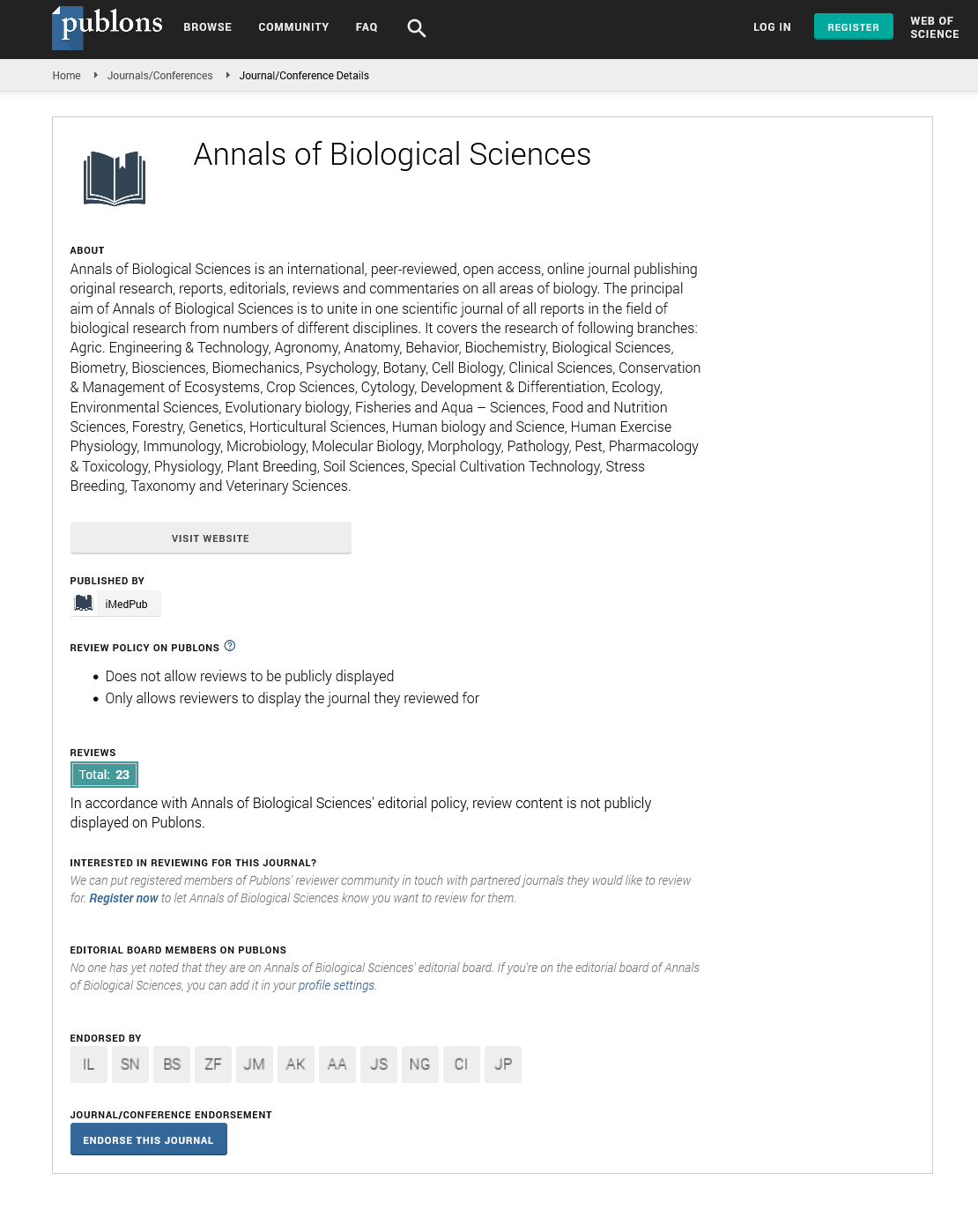ISSN : 2348-1927
Annals of Biological Sciences
Development of enzymatic membrane bioreactors for removal of pharmaceuticals from wastewater
ANNUAL BIOTECHNOLOGY CONGRESS
August 17-18, 2017 | Toronto, Canada
Faisal I Hai
Univeristy of Wollongong, Australia
Posters & Accepted Abstracts: Ann Biol Sci
DOI: 10.21767/2348-1927-C1-003
Abstract
Pharmaceuticals are ubiquitously detected in wastewater and wastewater-impacted waterbodies because they are resistant to bacterial degradation and thus pass through conventional wastewater treatment systems. This raises significant concern about their potential harmful impact on aquatic organisms and even human. Fungal laccase (EC 1.10.3.2) can degrade pharmaceuticals but its application is limited because of the concern of washout of laccase along with treated effluent from a continuous flow bioreactor. We previously developed an enzymatic bioreactor coupled with an ultrafiltration membrane, which prevented enzyme washout, thereby allowing continuous enzymatic degradation of pharmaceuticals. We noted that some resistant compounds such as naproxen and salicylic acid were retained by an enzyme gel layer formed on the membrane surface, subsequently resulting in their enhanced biodegradation. Based on this observation, we postulate that integration of high retention membranes with an enzymatic bioreactor can facilitate biodegradation of recalcitrant compounds by retaining both enzyme and the pharmaceuticals. This study explores a novel membrane distillation-enzymatic bioreactor system for the removal of four pharmaceuticals namely, diclofenac, naproxen, salicylic acid and ibuprofen as well as two ingredients of personal care products namely, oxybenzone and salicylic acid using laccase purified from genetically modified A. oryzae. The results confirmed almost complete retention (>95%) of the compounds by the bioreactor. Of particular interest was the fact that the complete retention improved the enzymatic degradation of compounds that have been reported to be poorly removed in other enzymatic bioreactors.
Google Scholar citation report
Citations : 406
Annals of Biological Sciences received 406 citations as per Google Scholar report
Annals of Biological Sciences peer review process verified at publons
Abstracted/Indexed in
- Google Scholar
- China National Knowledge Infrastructure (CNKI)
- WorldCat
- Publons
- ROAD
- Secret Search Engine Labs
Open Access Journals
- Aquaculture & Veterinary Science
- Chemistry & Chemical Sciences
- Clinical Sciences
- Engineering
- General Science
- Genetics & Molecular Biology
- Health Care & Nursing
- Immunology & Microbiology
- Materials Science
- Mathematics & Physics
- Medical Sciences
- Neurology & Psychiatry
- Oncology & Cancer Science
- Pharmaceutical Sciences
